Superman Trailer
Hmm. I don’t know. I haven’t liked Superman in a movie since the early 80s. What do you think? Does Superman even make sense as a contemporary superhero?



This site is made possible by member support. 💞
Big thanks to Arcustech for hosting the site and offering amazing tech support.
When you buy through links on kottke.org, I may earn an affiliate commission. Thanks for supporting the site!
kottke.org. home of fine hypertext products since 1998.
Hmm. I don’t know. I haven’t liked Superman in a movie since the early 80s. What do you think? Does Superman even make sense as a contemporary superhero?
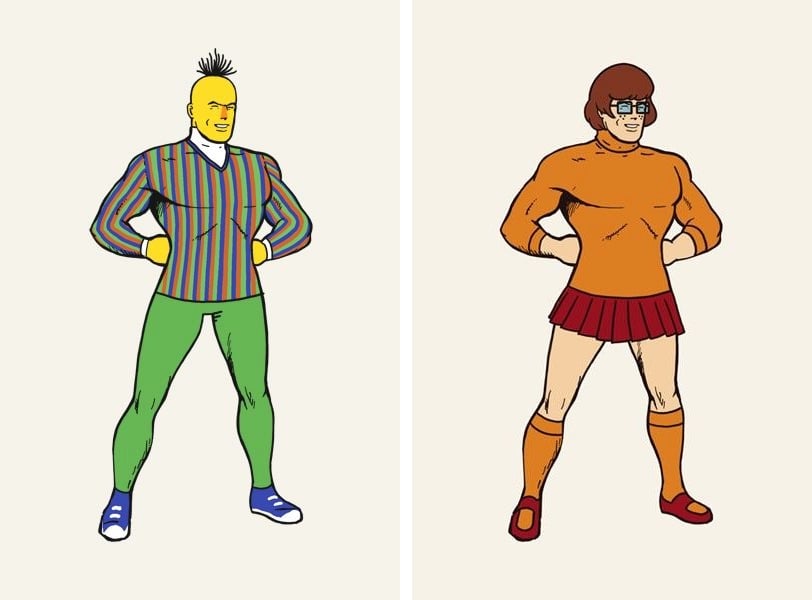
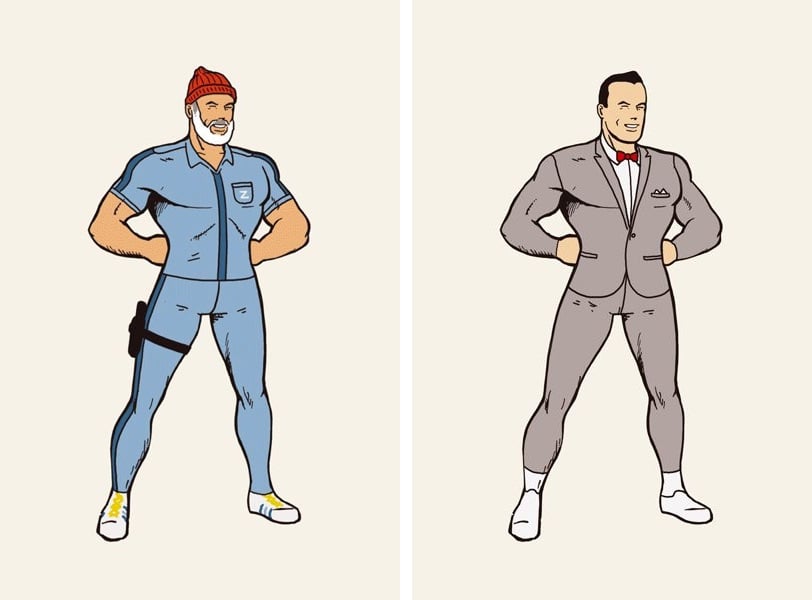
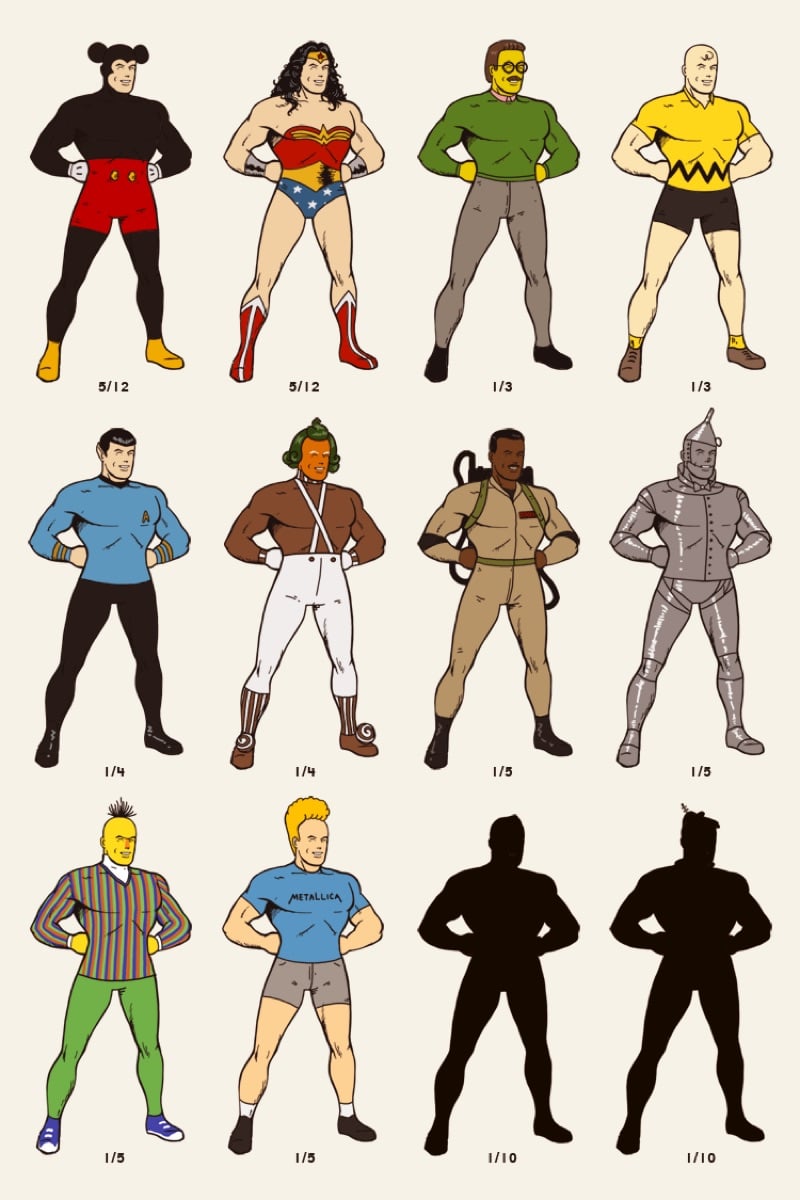
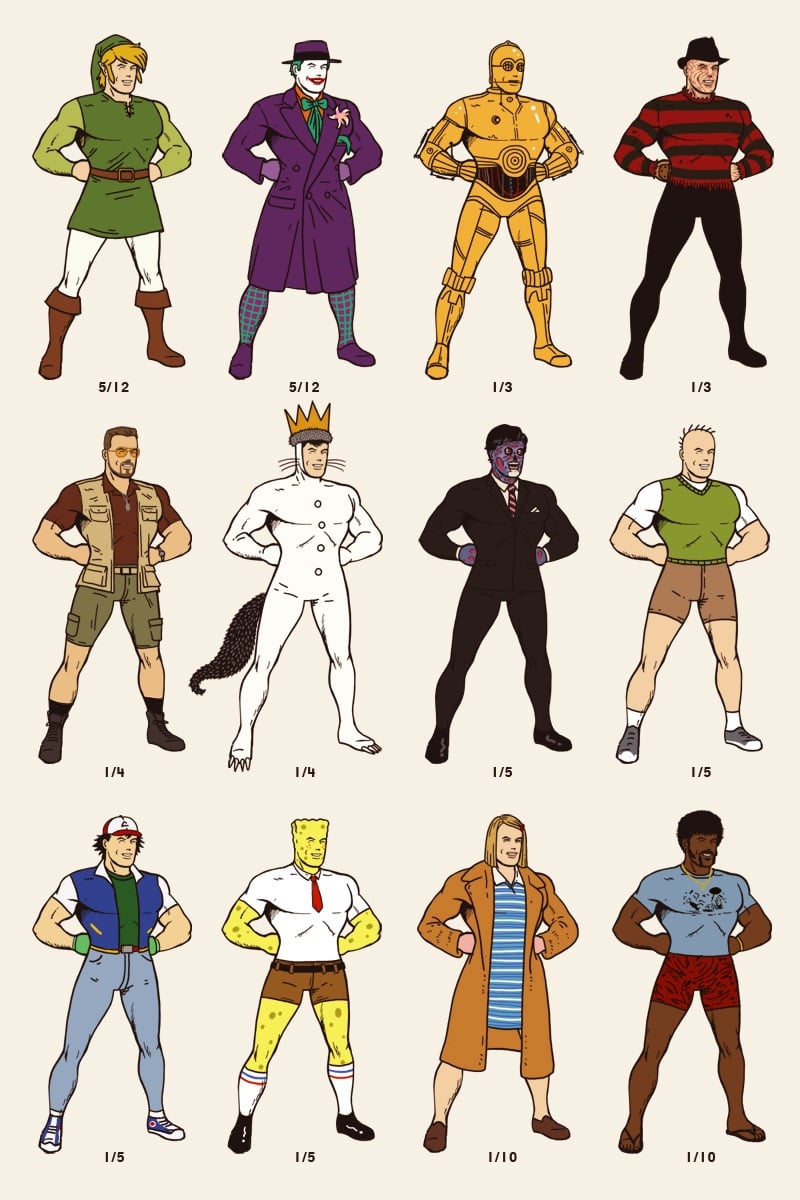
Using an iconic Superman pose, artist Mike Mitchell has translated all sorts of familiar characters onto that pose, including C-3PO, Velma from Scooby Doo, Charlie Brown, Ned Flanders, Pee-wee Herman, Bert from Sesame Street, Steve Zissou, and Spongebob Squarepants. Here’s an animation of all them. (via moss & fog)
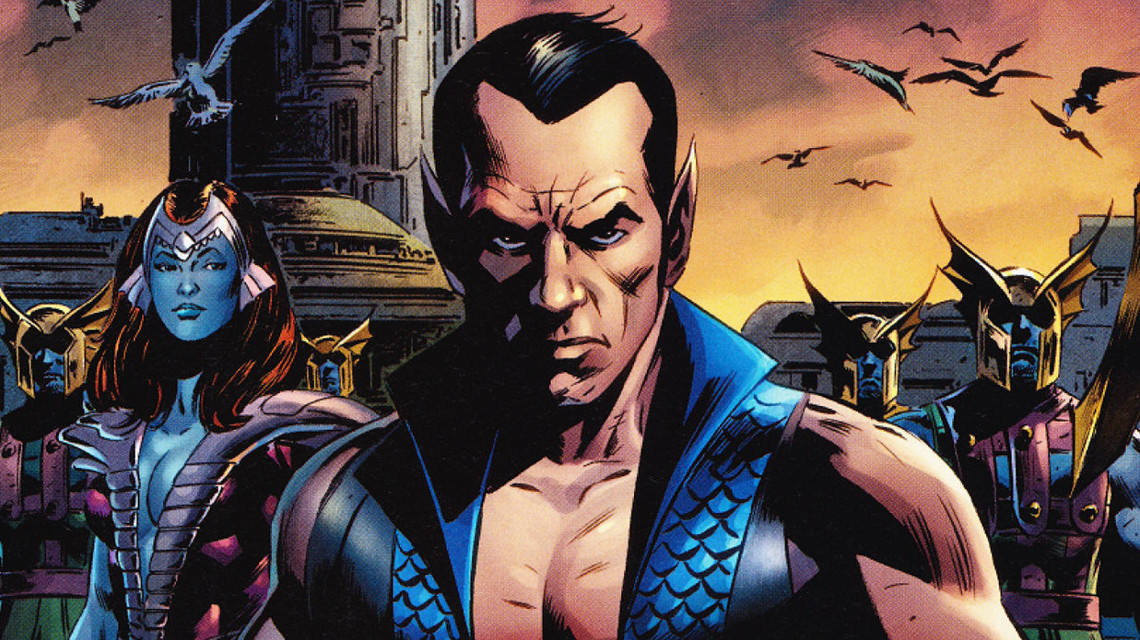
The late 1930s were a time of explosive creativity in the comics industry, with the creation of Superman, Batman, and Marvel Comics’ own unlikely fan favorite, Namor, the Sub-Mariner. I enjoyed reading this short précis on Namor in honor of his 80th anniversary.
Namor is less an early superhero than the last of the pulp icons, an antihero who threatened humanity with death and destruction. Unlike Superman, he’s not a secret alien raised by the best of humanity to save us all; he’s a hybrid mutant raised by a nonhuman race here on Earth that regards humanity as overgrown, ill-tempered children. And unlike Zack Snyder antiheroes who have to be twisted from their origin stories to bring them up to date, Watchmen-style, nothing about Namor needs to be changed to make him genuinely menacing, alien, and scary, while retaining his sexy charm. Namor’s just got it going on.
Namor’s film rights have been circuitously tied up for years, so we’ve never seen him on the silver screen. The first hit that always comes up when you search for him is Keanu Reeves, and Keanu at any age wouldn’t make a bad Namor. There’s talk of introducing him into the MCU via the Black Panther franchise, and that’s a great idea as well, since the main thing Black Panther and the Sub-Mariner share is that they’re not really super-heroes; they’re kings.
(Superman is precisely interesting to the extent that he is neither a king nor a god, but a man; these two things are not mutually exclusive. Hollywood’s inability to grasp this is part of why superhero movies have so much trouble, despite being the most dumb-simple megagenre of all time.)
In his latest video, Evan Puschak takes Batman v Superman director Zack Snyder to task for filling his movies with flashy moments instead of scenes that would give the movie more emotional punch.
It’s a convincing argument. But before watching this — and full disclosure: I have not seen Batman v Superman — I thought he was going to discuss the real flaw in BvS which is very simply: Superman is an invincible man and Batman is a normal guy in a fancy suit. If this were not a movie designed to entertain 14-year-old boys but a real thing happening in an actual world, Superman would just deal with Batman as trivially as you or I might swat a mosquito. And don’t get me started on kryptonite and Superman’s greater Achilles Heel, his goodness and love of humanity. As a storyteller, how many more interesting ways can you exploit those weaknesses? Superman is the most boring superhero — a nearly invincible man with very obvious flaws — and that’s why no one can make a contemporary film about him that’s any good.
P.S. Actually, Superman’s biggest flaw is that he wants to be a writer when he could quite literally do anything else with his time, like fly around or make time go backwards. What an idiot.
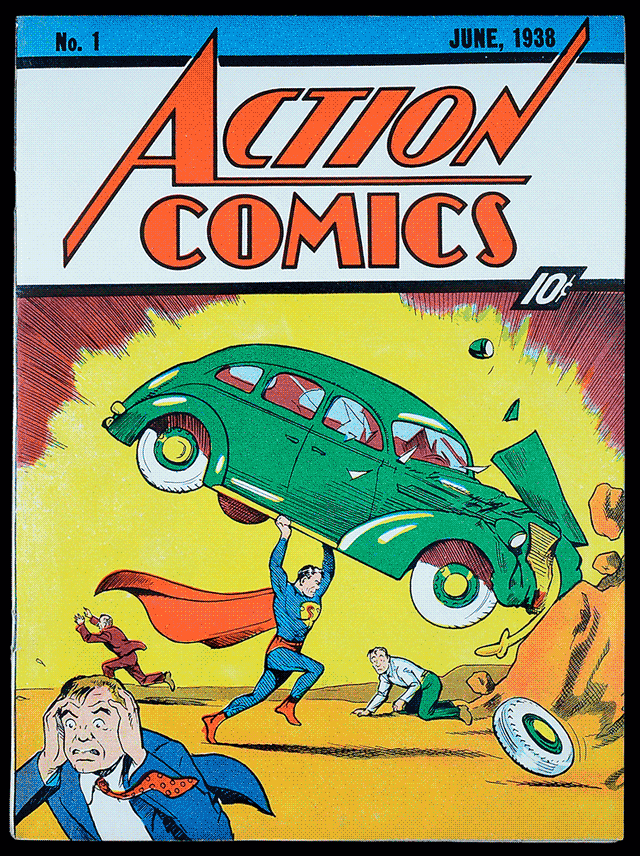
A single nearly flawless copy of Action Comics #1 recently sold on eBay for just over $3.2 million. Produced in 1938, the comic marked the first appearance of Superman and is considered the genesis of the superhero genre of comics (although there is some debate about that). This video shows what great condition this comic is in:
I’ve bought new comics that didn’t look that good. Here’s why:
The reason it was in such impeccable condition was that the while the first owner bought it for 10 cents from the newsstand in 1938 like 200,000 other people did, unlike most everyone else he lived at fairly high altitude in the Blue Ridge Mountains of West Virginia and when he finished reading it, he put the comic in a cedar chest where it remained virtually untouched for four decades. The cool, dark, dry environment of the cedar chest froze time for this comic.
You can flip through the entire comic yourself right here.
So this is the new trailer for the new Superman movie (Man of Steel), which should not be confused with the old trailer for the new Superman movie or with a trailer from the old new Superman movie or with a trailer from the old Superman movie.
What I am confused about is whether this trailer is any good. On one hand, it seems really really good but also really crappy at the same time. Tell me what to feel, Superman!
Watch how quickly this goalie gets back to defend his own goal.
He’s moving so comically fast compared to the other players on the pitch that it reminds me of the not-so-special effect of Clark Kent racing the train in Superman. (via unlikely words)
Here’s the abstract of a new paper seeking to explain Superman’s powers.
Since Time immemorial, man has sought to explain the powers of Kal-El, a.k.a. Superman. Siegel et al. Supposed that His mighty strength stems from His origin on another planet whose density and as a result, gravity, was much higher than our own. Natural selection on the planet of krypton would therefore endow Kal El with more efficient muscles and higher bone density; explaining, to first order, Superman’s extraordinary powers. Though concise, this theory has proved inaccurate. It is now clear that Superman is actually flying rather than just jumping really high; and His freeze-breath, x-ray vision, and heat vision also have no account in Seigel’s theory.
In this paper we propose a new unfied theory for the source of Superman’s powers; that is to say, all of Superman’s extraordinary powers are manifestation of one supernatural ability, rather than a host. It is our opinion that all of Superman’s recognized powers can be unified if His power is the ability to manipulate, from atomic to kilometer length scales, the inertia of His own and any matter with which He is in contact.
Why Superman will always suck.
Really, what lessons do the Superman comics teach? It says that mankind is full of dull, pointless weaklings and evildoers who can only be stopped by a white ubermensch from another planet, who didn’t work a day in his life in order to achieve his powers. Yeah, you could say he’s a symbol of “hope,” but not hope in human nature - hope in an all-powerful alien who saves the world daily so you don’t have to get off your butt and act like a moral person. What sort of message is that?
If you need to read any literature from Krypton (Superman’s home planet), here’s the 118 letter alphabet you’ll need to know.
Richard Donner is re-editing Superman II for a November 2006 DVD release. “Unlike many ‘special edition’ and ‘director’s cut’ movies released over the years, Superman II: The Richard Donner Cut will essentially be a completely new film.” (thx, dj)
Could Lois Lane have Superman’s baby? “His Kryptonian biological makeup is enhanced by Earth’s yellow sun. If Lois gets a tan, the kid could kick right through her stomach.” More discussion here. And here.
Pauline Kael’s New Yorker review of the 1978 version of Superman, just after it had been released. I don’t think she much cared for it.
Out of a recent conversation popped this interesting question: who was the first superhero? After a short discussion and a few guesses (Superman, Batman, etc), it was agreed that this might be the most perfect question to ask the internet in the long history of questions.
The earliest superhero I could find reference to was Mandrake the Magician, who debuted in 1934, four years before Superman, who was probably the first popular superhero. Mandrake’s super power was his ability to “make people believe anything, simply by gesturing hypnotically”. Does anyone out there know of any superheroes who made an earlier media appearance?
There’s a related question that has some bearing on the answer to the above question: what is a superhero? There have probably been books (or at least extensive Usenet threads) written on this topic, but a good baseline definition needs to acknowledge both the “super” and the “hero” parts. That is, the person needs to have some superhuman power or powers and has to fight the bad guys. But this basic definition is flawed. Superman is an alien, not human. Batman doesn’t have any super powers…he’s a self-made superhero like Syndrome in The Incredibles. Or can a superhero be anyone (human or no) that fights bad guys and is superior to normal heroes…the cream of the hero crop? And what about a costume or alter ego…are they essential for superheroism? These are all questions well-suited for asking the internet, so have at it: what’s a good definition for a superhero?
And there’s (at least) one more angle to this as well…where did the idea of the superhero come from? As Meg suggested to me at dinner last night, was there a cultural need for a superhero during a super-crisis like the Great Depression? Or did the idea evolve gradually from regular heros (cowboys, space cowboys, etc.) to heros who were magicians (with special powers…it’s not that much of a stretch to imagine a magician possessing supernatural powers) to classic superheroes like Superman?
Stay Connected